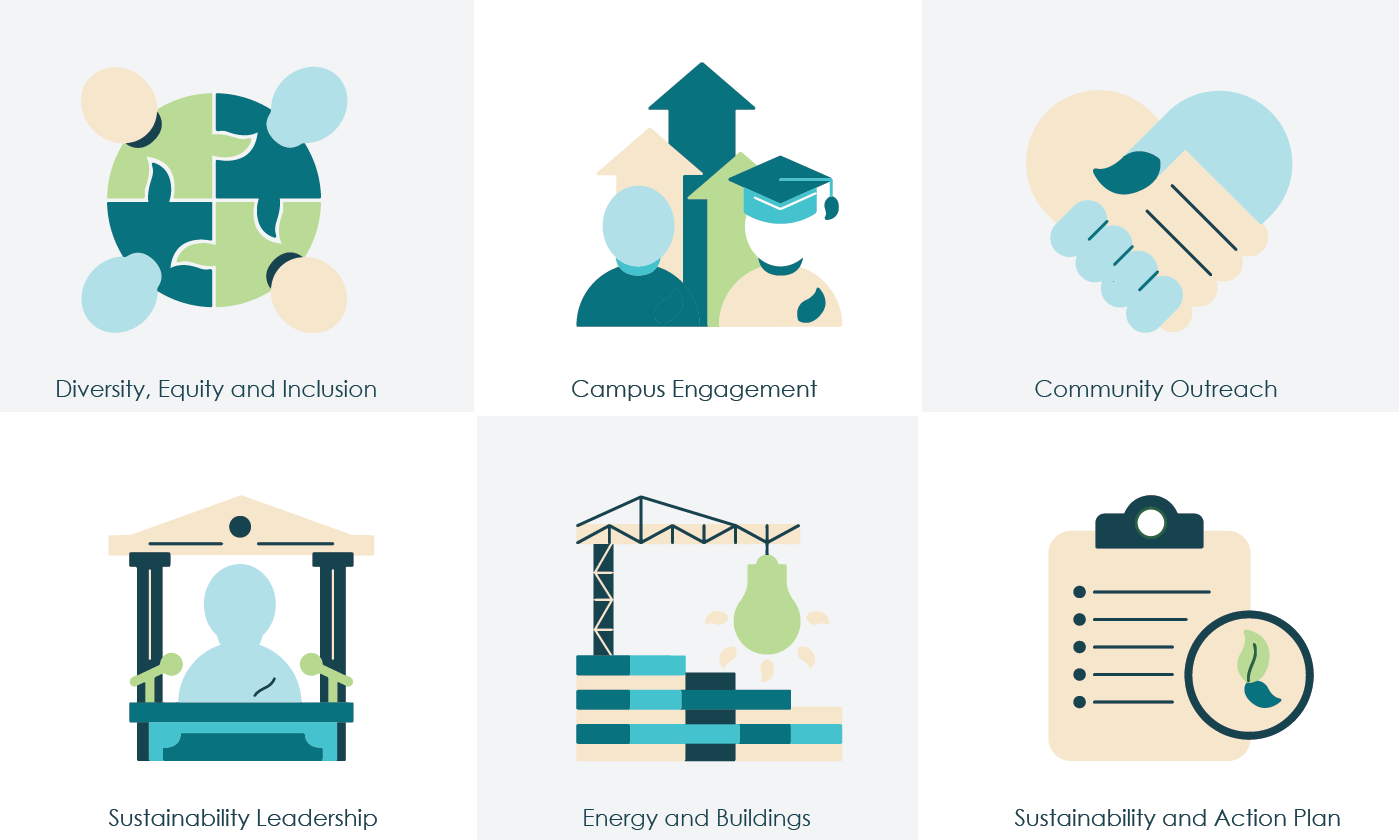Sustainability Action Plan
Ensuring Institutional Responsibility
Our choices have an impact at all scales. Our choices impact all categories. In order to live the sustainability and take an active and leadership role as a higher education institution, it is imperative that we respond to the evolving environmental and climate change issues happening around us, and address social and fiscal matters impacting communities we serve.
Participate in Sustainability Activities at MVC

Intent
In continuing the efforts to be a responsible partner and steward for managing its resources and being an environmentally responsible institution, RCCD is embarking on a comprehensive Sustainability and Climate Action Plan. The plan seeks to raise awareness, develop an action plan, and make recommendations concerning climate change, environmental stewardship and responsibility, energy conservation, and climate and social justice.
RCCD Board Policy 5775 (pdf) CCC Climate Change and Sustainability Policy (pdf)
District Roadmap
The effort to create a sustainability master plan is District-wide. The project roadmap includes:
- Establish Sustainability & Environmental Responsibility Committee
- Define Charge, Goals, Objectives, Criteria, and Timeline
- Select and Prioritize Implementation Programs
- Develop and articulate Sustainability & Environmental Responsibility Plan
- Implement Sustainability & Environmental Responsibility Plan
- Regularly Monitoring and Reporting Progress
These MVC employees serve on the RCCD Sustainability Committee:
- Majd Askar - Vice President, Business Services
- Ron Kirkpatrick - Director, Facilities
- Laurie Crouse - Classified Representative
- Joanna Werner-Fraczek - Faculty Representative
- Student Representatives, ASMVC
Clean Mobility Options (CMO) is part of California Climate Investments, a statewide initiative that puts billions of Cap-and-Trade dollars to work to reduce greenhouse gas emissions, strengthen the economy, improve public health, and improve the environment. CMO aims to improve access to clean mobility options in underserved communities that are safe, reliable, convenient, and affordable to increase mobility equity, improve local air quality, increase zero-emission vehicle adoption, reduce vehicle miles traveled, and advance workforce development in clean transportation.
The CMO Voucher Pilot Program provides funding for zero-emission car sharing, carpooling/vanpooling, bike sharing/scooter sharing, innovative transit services, and ride-on-demand services in California's historically underserved communities.
The District, in collaboration with EViaShare Solutions, LLC, submitted a Community Transportation Needs Assessment (CTNA) application to CMO to access grant funding to conduct a needs assessment of car sharing opportunities at the District's three colleges. On July 30, 2020, the District received notice from CMO that its CTNA application had been approved for funding in the amount of $49,530.
In May 2021, the District conducted two (2) virtual workshops and launched a CTNA Survey for all students, faculty and staff at District.
In alignment with Board Policy 5775 - Sustainability/Environmental Responsibility, the District is looking to invest its resources for on‐campus renewable energy sources, specifically, Solar Photovoltaic (PV) System, and develop a District-wide solar plan at all its sites to achieve its economic sustainability, social sustainability, and environmental sustainability goals. This initiative will go in three different phases.
Approach and Selection Process (pdf) Final Presentation (pdf)
Development Phase
- LEED Certified Buildings
- Prop 39, the Californai Clean Energy Jobs Act
Proposition 39, The California Clean Energy Jobs Act, passed by the voters in 2012, provides funding for energy project implementation in the CCC system for qualifying projects. RCCD leveraged $4,484,854 from the State plus additional $228,0943 local fund for energy efficacies projects at Moreno Valley College, Norco College and Riverside City College, which have reduced the energy for districtwide facilities by 2,408,756 kW/h annually.
MVC Implementation
The MVC Task Force Committee identifies affected areas and plans the implementation of the sustainability efforts on our campus.
- Phase I - Host listening tours, focus groups and open forums with campus community (Completed, Under Review)
- Phase 2 - Priorities and Goals - Establish benchmarks and goals for short, mid and long-term (such as Recycling programs, LED lighting, upgrade hvac systems, solar panels, greening the academic curriculum, campus engagement, and so on). These efforts will align with MVC's top VALUES.
- Phase 3 - Action plan and implementation - Identify short-, mid- and long-term initiatives that MVC will take to meet goals. Establish what we can do now, and later to begin implementing the plan. Incorporate Total cost of ownership model into pilot projects on campus.
- Phase 4 - final plan and approvals - final presentation adoption and approval of plans
- Resources Subcommittee members
- District Sustainability Committee Members
- Expanded Task Force Committee
- Student Academic Services at Moreno Valley College earned a LEED Silver Certification. (Occupied: 2013; Architect: DLR Group)
Documents and Resources
Access planning documents, resources and more below.